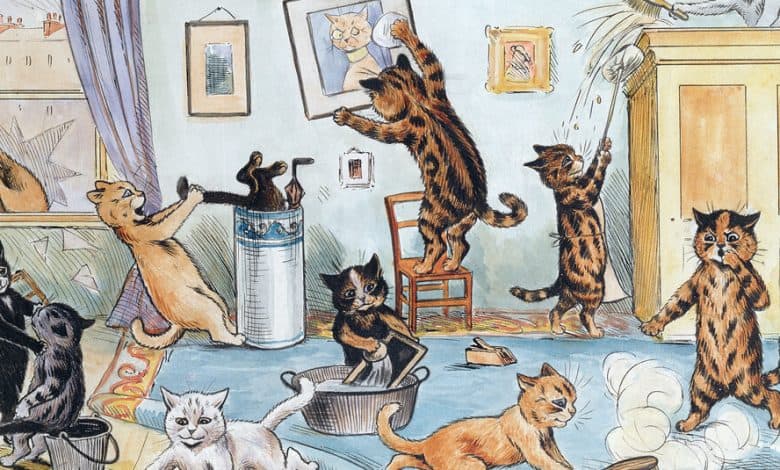How Did Cats Take Over the World? One Bizarre Drawing at a Time.

CATLAND: Louis Wain and the Great Cat Mania, by Kathryn Hughes
Anyone who has lived with a cat can tell you: Cats are familiars and mysteries in equal measure.
Despite the outsize presence of their little bodies, we sometimes seem to know very little about them. How did we find ourselves in this feline-dominated landscape, and why are we still discovering how much there is to know?
Arriving to explore this mystery — and to complicate it further — is “Catland,” by the writer and critic Kathryn Hughes. The title is both literal and metaphorical, a nod to the intertwined worlds the book explores: the imaginary place invented by the Victorian cat illustrator Louis Wain, and the lived landscape we continue to inhabit some 150 years later.
“Catland” is, at its core, an examination of a quickly modernizing, post-Industrial Revolution Britain, where everything was transforming, including cats — who went “from anonymous background furniture into individual actors.” In short order, cats lost their “weaselly faces and ratty tails” as their faces and eyes became rounder. (While Hughes refers to the quick genetic turnaround possible given cats’ reproductive behaviors, it is not entirely clear whether cats really looked like this or were simply represented as such by artists.)
As with designer dogs and their gentlemen breeders, early cat fanciers competed in cat shows, distinguishing their rarified breeds from the common alley and barn cats who multiplied without concern for lineage.
The commercial artist and illustrator Louis Wain’s art evolved alongside this emerging feline paradise, and his cats also grew both rounder in face and elevated in status — until, eventually, their society was as weird and complex as their owners’. At the height of his popularity, Wain’s cats were everywhere, doing everything — selling soap and boots in advertisements, being patriotic on postcards, riding bikes or bickering with spouses in newspapers and magazines.